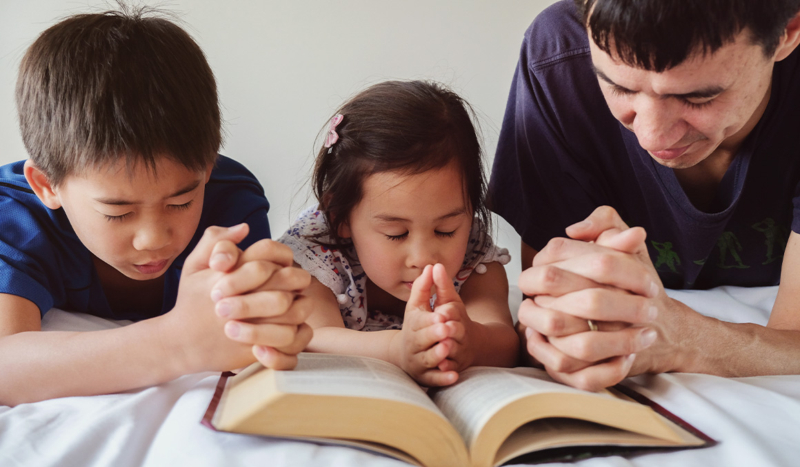
Shutterstock
CV NEWS FEED // A recent opinion piece argued that instead of outsourcing religious education to Catholic schools or religious education teachers at parishes, parents should be trained to teach their children the faith.
Maria Riley, a Catholic mother and author, wrote in her Substack that Faith Family Formation (FFF) offers a stable alternative to traditional religious education, which, data shows, is not instilling life-long faith in young Catholics, noting that for every new convert to the faith, eight Catholics have left the faith.
“As integral as Religious Education (RE) classes are to parish life, the crux of this obligation to keep kids Catholic falls to the children’s parents,” she wrote. “Unfortunately, between weekly RE sessions and Catholic school attendance, many parents are all too happy and willing to let someone else be responsible for the faith education of their children.”
Parents, Riley wrote, promised in their marriage vows and at their children’s baptisms to raise their children in the faith. These vows oblige the parents to educate their children in the faith, she wrote, not the religious education teachers.
“In this promise, parents have unequivocally committed to the spiritual development of their child. This obligation extends beyond simply paying the registration fee and dropping their child off at RE each week,” she wrote. “Faith must be lived and experienced at home, every day, for the transformative relationship between Christ and his disciple to grow deep roots by the time the child reaches his or her teen years.”
FFF offers a way to empower parents to become their children’s primary catechists. At the beginning of each month, parents are invited to a meeting at the parish where they will go over the material for the coming weeks, supporting parents who feel under-catechized.
“Additionally, the entire family comes to the parish once a month for a family session that includes a small teaching, a family activity, and time for fellowship,” Riley continued. “Families can begin to build relationships with other families, particularly those with kids of similar age. This fellowship is completely devoid in a drop-off RE or Catholic classroom setting, and building community, especially for families with children at home, will foster the heart transformation Jesus seeks for all of us. The parish will begin to feel like home.”
The FFF model, she continued, will encourage the entire family to grow in the faith. Parents can choose when and how to teach lessons at home. They can also take into consideration each child’s needs and temperaments.
“Catholicism isn’t simply checking the box after attending Mass on Sunday. It’s relational and meant to be deeply personal,” Riley wrote. “By experiencing faith together as a family, parents can not only deepen their own faith but can adequately pass down their love of Christ and his Church. Children need to know why faith matters, especially in today’s culture that is constantly vying for their attention and preaching pleasure over sacrifice.”

